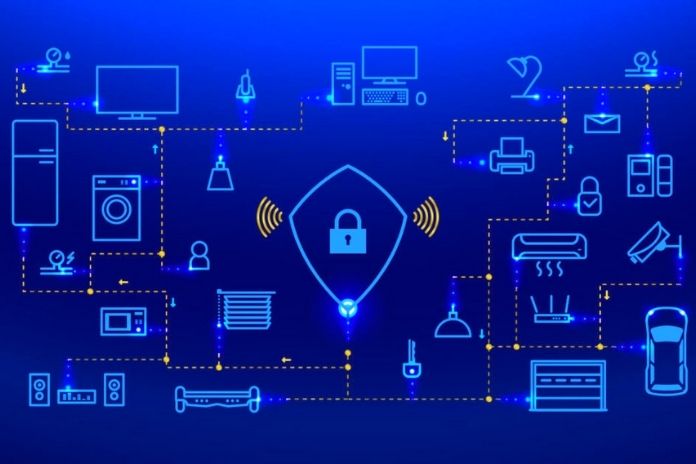IoT Dangers: Data Vulnerability & Cyber Threats

IoT Dangers – The Internet of Things harbors both opportunities and risks. Many experts see the IoT primarily as a threat to privacy. In addition, there is still no clear concept for reliably protecting sensitive data from hackers and misuse.
The Glass Man: A Dystopia?
Connected household appliances, self-driving cars, and smart fitness bracelets are constantly collecting data in all areas of life. This is no longer just data on surfing behavior but also information that any other technology has not previously evaluated on a larger scale. In the synopsis, they result in a detailed personality profile and can also enable statements about the state of health of the corresponding users.
This circumstance drives data protectionists to the barricades, who warn of the danger of transparent people. Even if the data were made anonymous and could no longer be assigned to specific individual users, the data would allow conclusions to be drawn about the habits and behavior of specific population groups.
IoT Devices In Market
On the other hand, many companies have an economic interest in collecting comprehensive data. Several corporations such as Google, Amazon, and Apple are already vying for market leadership in IoT devices. With the help of personalized data, companies can make tailor-made offers to their customers and better adapt to their needs. However, consumers are only able to a limited extent to control which data an IoT device forwards to the manufacturer and its partner companies using the data protection settings.
Legal regulations can put a stop to the extensive collection of personal data. However, users find it increasingly difficult to understand and control how IT applications collect, store, and process data when dealing with complex artificial intelligence. It isn’t easy to optimally configure the data protection settings. Consumers use several IoT devices simultaneously in everyday life; they quickly lose track. You hardly know which data is evaluated by which provider for which purposes. For this reason, privacy advocates warn that the right to informational self-determination is in jeopardy.
IoT Dangers – How To Protect Against Cyber-Attacks?
Even more severe is that data protection officials believe that there has hardly been any work on effective security solutions. This makes the Internet of Things vulnerable to hacker attacks and data theft. Personal data was often passed on unencrypted, and there were numerous potential gateways for hackers. This makes it easy for cybercriminals to steal sensitive data such as private photos, credit card numbers, or passwords for email accounts.
Due to the comprehensive networking, an unmanageable number of devices exchange data without a break. This means that the Internet of Things is vulnerable and susceptible to manipulation at many points. If several objects are connected, it is easier to hack several devices from one interface. With an electric stove, which automatically preheats itself in an intelligent home as soon as the resident comes home in the evening. And passes through the automatically unlocking apartment door, hackers could quickly gain control of the door and alarm system thanks to networking. An IT company recently experimentally hacked a Samsung refrigerator and also accessed the owner’s Google account passwords that way.
Experts Say…
Hackers are not only able to access data, but they can also control devices that have been hacked and connected to it via the IoT. Security researchers proved this, for example, when examining the networked Jeep Cherokee from Fiat Chrysler. After hijacking the car via an interface, they remotely took control of the brakes and steering wheel.
Some security experts warn that in a fully connected world, even factories, water utilities, and nuclear power plants are not 100% safe from this type of tampering. However, these are worst-case scenarios that focus solely on the potential dangers of the Internet of Things. The good news is that voices calling for more security and privacy standards are getting louder – and developers are heeding them.
IoT Dangers – System Vulnerability
Not only targeted cyberattacks are a danger for IoT devices, but also programming errors. Critics of the Internet of Things point to the risk of over-reliance on seemingly flawless technology that controls itself. A bug could cause a device in the networked medical practice to miss a value during diagnosis and prescribe the wrong medication. In addition, smart cities require a complex infrastructure with thousands upon thousands of sensors and actuators. For this system not to paralyze itself, it would have to be maintained and checked regularly by people.
IoT And Network Neutrality
How is IoT changing the digital society? Discussions about this also address the issue of net neutrality. This is due to the underlying technology of the Internet of Things. The future mobile communications standard 5G provides for what is known as network slicing. This divides the mobile Internet into virtual network sections, each dedicated to different applications and whose data is transmitted at different speeds. This creates a flexible 5G network. For example, treats voice applications differently than video streaming and does not process them simultaneously.
Supporters of network slicing emphasize that this procedure is necessary to cope with the high volume of data and ensure real-time transmission. If all data packets were treated equally, applications that generate large amounts of data and require real-time response would not function properly. Therefore, a self-driving car that has to brake quickly should have a higher priority than a shopping reminder.
Critics of network slicing see it as an attack on net neutrality. As it has been working up until now, the Internet would no longer exist because certain actors would be given preference. It would also be conceivable for companies to tie such prioritization to higher costs. Opponents of network slicing, therefore, fear that it will restrict consumers. It could also endanger(IoT Dangers) free competition in the digital economy.
Also Read: How The IoT Is Affecting Education


